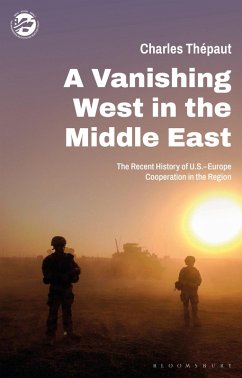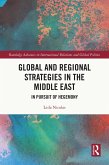A Vanishing West in the Middle East covers the history of Western cooperation in the Middle East and North Africa since the end of the Cold War. Based on more than fifty interviews with diplomats and experts as well as consultations of the academic literature, it describes the operational and political frameworks through which the United States and European countries have intervened in the Arab world, and how their relations with the region have changed. Practitioner testimonies and detailed case studies illuminate U.S. successes and failures in enlisting allies for campaigns in Iraq, Syria, and Libya.
This analysis goes to the heart of the American debate on "endless wars" but also questions the very concept of Western intervention in a region where the Arab Spring and subsequent uprisings have profoundly changed the geopolitical landscape. Today, whereas the United States wishes to pull back from the region, Europe understands it must become more involved. Whatever their particular motivations, both must adapt to an increasingly fragmented Middle East, influenced specifically by more assertive Chinese, Russian, Iranian, Emirati, and Turkish foreign policies.
Hinweis: Dieser Artikel kann nur an eine deutsche Lieferadresse ausgeliefert werden.
This analysis goes to the heart of the American debate on "endless wars" but also questions the very concept of Western intervention in a region where the Arab Spring and subsequent uprisings have profoundly changed the geopolitical landscape. Today, whereas the United States wishes to pull back from the region, Europe understands it must become more involved. Whatever their particular motivations, both must adapt to an increasingly fragmented Middle East, influenced specifically by more assertive Chinese, Russian, Iranian, Emirati, and Turkish foreign policies.
Hinweis: Dieser Artikel kann nur an eine deutsche Lieferadresse ausgeliefert werden.









